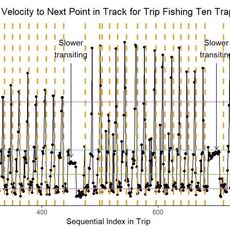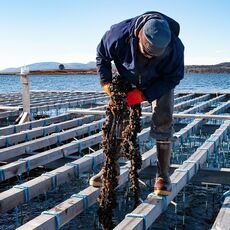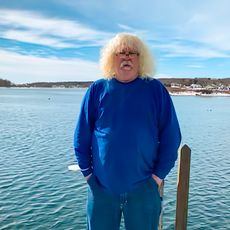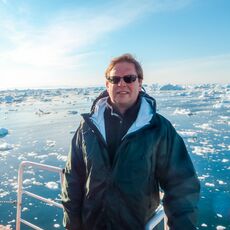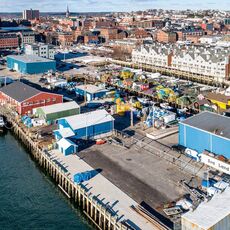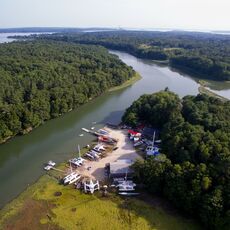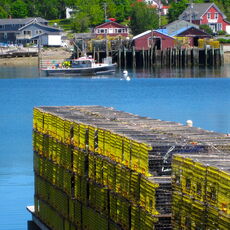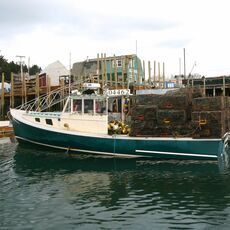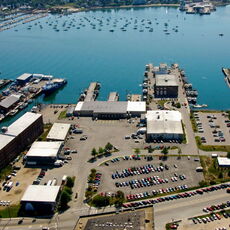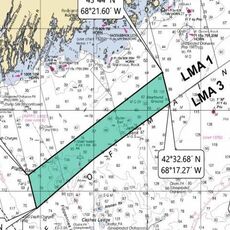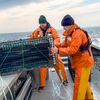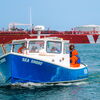Processing Your Payment
Please do not leave this page until complete. This can take a few moments.
- News
-
Editions
-
- Lists
-
Viewpoints
-
Our Events
-
Award Honorees
- 2025 Business Leaders of the Year
- 2025 Outstanding Women in Business
- 2024 40 Under 40 Honorees
- 2024 Women to Watch Honorees
- 2024 Business Leaders of the Year
- 2023 NextUp: 40 Under 40 Honorees
- 2023 Women to Watch Honorees
- 2023 Business Leaders of the Year
- 2022 NextUp: 40 Under 40 Honorees
- 2022 Women to Watch Honorees
- 2022 Business Leaders of the Year
-
-
Calendar
-
Biz Marketplace
- News
-
Editions
View Digital Editions
Biweekly Issues
- September 22, 2025
- September 8, 2025
- August 25, 2025
- August 11, 2025
- July 28, 2025
- July 14, 2025
- + More
Special Editions
- Lists
- Viewpoints
- Our Events
- Calendar
- Biz Marketplace
Fisheries & Marine
-
A ping per minute could help regulators track lobster fishing in federal waters
Staff January 14, 2022Goals include a better understanding of fishery interactions with endangered whales and minimized conflict with other ocean users such as offshore wind development.
Staff January 14, 2022Aquaculture workforce development is the focus of $500,000 grant to nonprofit
Staff Updated: January 7, 2022Maine’s aquaculture industry needs skilled workers. A grant to the Gulf of Maine Research Institute aims to help, with money going toward apprenticeships and course development.
Staff Updated: January 7, 20222022 Forecast: The state’s health depends on health of lobster industry
Jessica Hall Updated: January 10, 2022John Hathaway, CEO and president of lobster processor Shucks Maine Lobster, says the state's health is tied to the health of the lobster industry.
Jessica Hall Updated: January 10, 20222022 Forecast: Portland Fish Exchange GM sees fewer landings, tougher year
Jessica Hall Updated: January 10, 2022The Portland Fish Exchange's general manager sees a tough year ahead with fewer vessels in the fleet, more restrictions on fishing areas and a labor crunch tightening crews.
Jessica Hall Updated: January 10, 20222022 Forecast: Within diverse aquaculture industry, slow-but-steady growth
Laurie Schreiber Updated: January 10, 2022Slow-but-steady growth and a diverse industry have been a hallmark of the industry for many years, sustaining it through economic downturns, the pandemic and other challenges.
Laurie Schreiber Updated: January 10, 2022Maine will have a say in lobstermen’s lawsuit to stop new federal rules
Staff Updated: January 3, 2022The Mills administration called the federal government’s plan “burdensome” and lacking a basis in sound science, and said it will nearly wipe out Maine’s lobster industry.
Staff Updated: January 3, 2022Sale of Union Wharf closes, changing hands for historic fixture on Portland waterfront
Jessica Hall December 29, 2021With the formal completion of the sale, the wharf is now owned by the Gulf of Maine Research Institute.
Jessica Hall December 29, 2021Counting Maine lobsters? There’s an app for that
Staff Updated: December 27, 2021All lobster harvesters will be required to report landings in 2023, up from a fraction today. Better data is expected to ensure informed decisions around issues that impact fishermen, like whale regulations and offshore wind development.
Staff Updated: December 27, 2021Nonprofit buys Yarmouth boatyard to preserve working waterfront
Laurie Schreiber December 22, 2021The sellers wanted to see it the yard remain as a working waterfront. The buyers plan to address infrastructure challenges and create a business incubator and marine business hub.
Laurie Schreiber December 22, 2021USM, aquaculture company get $250K to test a natural pollution solution
Staff December 10, 2021A grant will allow the University of Southern Maine and Portland-based Running Tide to test the use of shellfish and kelp to reduce nutrient pollution in Casco Bay.
Staff December 10, 2021After Supreme Court rejects appeal, lobstering union vows to continue fight
William Hall December 6, 2021The Maine Lobstering Union had filed an emergency petition with U.S. Supreme Court Justice Stephen Breyer to end a closure of lobstering waters off the state's coast. On Friday afternoon, Breyer rejected the application.
William Hall December 6, 2021Lobster union's battle over fishing waters heads to the Supreme Court
Staff December 3, 2021The Maine Lobstering Union filed a brief with U.S. Supreme Court Justice Stephen Breyer to end a seasonal closure of 967 square miles of lobstering waters off the coast of Maine.
Staff December 3, 2021Kingfish aquaculture deal in Jonesport moves forward with property purchase
Laurie Schreiber Updated: November 30, 2021After buying 94 acres and securing final permits, the Netherlands-based Kingfish Co. can now advance to design and engineering of a land-based facility for cultivating yellowtail kingfish.
Laurie Schreiber Updated: November 30, 2021New report finds threats to Maine working waterfronts, proposes solutions
Staff Updated: November 29, 2021Maine's working waterfronts are under threat from pressures such as climate change and rising real estate costs, according to a new report from the Island Institute. The report proposes a comprehensive approach to preserve access.
Staff Updated: November 29, 2021Bristol Seafood adds nearby building to grow its retail business
Laurie Schreiber November 27, 2021With sales of retail lines on pace to triple or even quadruple, the additional building offers capacity and additional automation while also freeing up space in the original facility.
Laurie Schreiber November 27, 2021Industry, politicians deplore reinstatement of lobster fishing closure
Staff November 18, 2021The sudden closure is expected to cause significant economic hardship for Maine’s lobster industry, costing hundreds of fishermen millions of dollars during the lucrative late fall and winter months.
Staff November 18, 2021
Today's Poll
Sponsored by: Kennebunk Savings Bank
With the official end of summer this past weekend, we're taking a look back at how the season unfolded.
Back in early August, we asked how the summer tourism season was going — and at the time, the majority of respondents told us it could be better. And remember, the season started very rainy and ended amid a drought.
Now that the season has wrapped up, we're checking in again to see how things ended. Did things improve? Did tourism pick up later in the summer, or did the season fall short of expectations?

The Giving Guide
The Giving Guide helps nonprofits have the opportunity to showcase and differentiate their organizations so that businesses better understand how they can contribute to a nonprofit’s mission and work.
Learn More
Work for ME
Work for ME is a workforce development tool to help Maine’s employers target Maine’s emerging workforce. Work for ME highlights each industry, its impact on Maine’s economy, the jobs available to entry-level workers, the training and education needed to get a career started.
Learn More
Groundbreaking Maine
Whether you’re a developer, financer, architect, or industry enthusiast, Groundbreaking Maine is crafted to be your go-to source for valuable insights in Maine’s real estate and construction community.
Learn more-
The Giving Guide
The Giving Guide helps nonprofits have the opportunity to showcase and differentiate their organizations so that businesses better understand how they can contribute to a nonprofit’s mission and work.
-
Work for ME
Work for ME is a workforce development tool to help Maine’s employers target Maine’s emerging workforce. Work for ME highlights each industry, its impact on Maine’s economy, the jobs available to entry-level workers, the training and education needed to get a career started.
-
Groundbreaking Maine
Whether you’re a developer, financer, architect, or industry enthusiast, Groundbreaking Maine is crafted to be your go-to source for valuable insights in Maine’s real estate and construction community.
ABOUT
NEW ENGLAND BUSINESS MEDIA SITES
No articles left
Get access now
In order to use this feature, we need some information from you. You can also login or register for a free account.
By clicking submit you are agreeing to our cookie usage and Privacy Policy
Already have an account? Login
Already have an account? Login
Want to create an account? Register
This website uses cookies to ensure you get the best experience on our website. Our privacy policy
To ensure the best experience on our website, articles cannot be read without allowing cookies. Please allow cookies to continue reading. Our privacy policy
